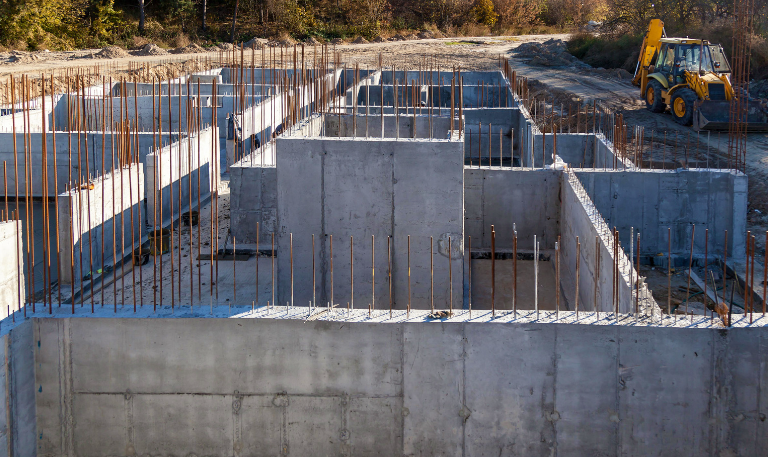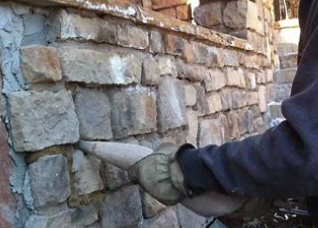Is Concrete Fire-Resistant? Learn The Facts
Fire safety is paramount in construction. One of the main materials used in structures worldwide is concrete, revered for its strength and durability. But how does it fare when exposed to fire? Let’s unpack the truth about fire resistant concrete and its role in creating safer spaces.
The Inherent Fire Resistance of Concrete
Concrete, by its very nature, is fire-resistant. This is due to the components that make up the material, such as aggregates and cementitious binders. These ingredients don’t readily catch fire and can withstand high temperatures without losing structural integrity.
What Happens to Concrete Under Fire?
When exposed to fire, concrete experiences several changes:
- Dehydration: The concrete starts to lose its inherent moisture.
- Thermal Expansion: As with many materials, concrete expands when heated. However, its rate of thermal expansion is relatively low, which prevents rapid degradation under fire.
- Spalling: Under certain conditions, especially when moisture within the concrete turns to steam, bits of concrete can break off, a phenomenon known as spalling.
Factors Influencing Concrete’s Fire Resistance
While concrete is inherently fire-resistant, various factors can influence its performance under fire:
- Type of Aggregate: Aggregates like limestone and basalt enhance concrete’s fire resistance. On the other hand, aggregates like quartz may decrease resistance due to their differential thermal expansion.
- Density: Denser concrete generally offers better fire resistance. Pores or voids within the material can cause heat to penetrate more deeply, leading to quicker degradation.
- Moisture Content: Wet concrete can lead to increased spalling due to the rapid conversion of water to steam under high temperatures.
- Thickness: Thicker sections of concrete offer more protection against fire as they take longer to heat, providing a greater barrier against flames.
Enhancing the Fire Resistance of Concrete
To boost the fire-resistance of concrete, several measures can be taken:
- Use of Supplementary Materials: Materials like fly ash and slag, when added to concrete, can enhance its fire resistance.
- Protective Coatings: Specialized fire-resistant coatings can be applied to concrete surfaces to reduce heat penetration and prevent spalling.
- Special Additives: Certain additives can reduce the risk of spalling by creating pathways for steam to escape, preventing internal pressure build-up.
Concrete Compared to Other Building Materials
When compared to other popular construction materials like wood or steel, concrete stands out for its fire-resistant qualities:
- Wood: Wood is combustible and, unless treated with fire-retardants, can quickly catch fire, resulting in a rapid loss of structural integrity.
- Steel: While not combustible, steel loses strength rapidly when exposed to high temperatures, leading to potential structural failures. Concrete can protect steel reinforcement, acting as a thermal barrier, slowing down the heating process.
The Broader Perspective
When it comes to fire safety in construction, the focus shouldn’t solely be on the fire resistance of individual materials. It’s vital to adopt a holistic approach, considering factors like building design, firebreaks, escape routes, and the integration of active fire protection systems like sprinklers.
Safety First in Construction
Understanding the fire-resistant properties of concrete is pivotal for architects, builders, and property owners alike. While concrete offers significant advantages when it comes to resisting fires, it’s crucial to ensure that all aspects of fire safety are considered during the construction process. Emphasizing the use of fire-resistant concrete, along with other safety measures, lays the foundation for structures that prioritize the well-being of their occupants.
Latest News

4 Ways To Reinforce Concrete
Concrete is one of the most fundamental materials used in construction. If you’re working on a domestic project or a […]

The Environmental Benefits Of Using Ready-Mix Concrete
The construction industry is changing quickly to meet the growing demand for sustainability and eco-friendly practices. One of the most […]

6 Essential Tips For Grouting Stone Veneer
Grouting stone veneer is an important step in the installation process that can significantly impact the overall look and durability […]

Should You Fill Hollow Concrete Blocks?
Hollow concrete blocks are widely used in construction due to their strength, versatility, and lighter weight compared to solid blocks. […]
